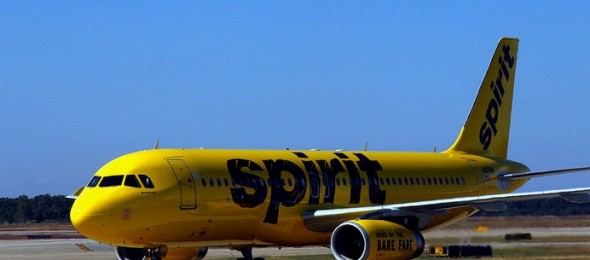It appears the United States Supreme Court may find itself considering yet another arbitration issue in the near future. The Eleventh Circuit Court of Appeals has split with other circuits and held an arbitrator must decide whether class arbitration is permitted under the rules of the American Arbitration Association (“AAA”). In Spirit Airlines, Inc. v. Steven Maizes, et al., No. 17-14415 (11th Cir., August 15, 2018), a man, Maizes, and numerous other individuals purchased an annual membership to Spirit Airline’s discount fare program, the “$9 Fare Club.” The terms of the membership agreement contained an arbitration clause that incorporated the rules of the AAA.
Later, Maizes filed an arbitration claim against Spirit on behalf of himself and a larger class of “$9 Fare Club” customers claiming the company did not comply with the terms of the discount fare program agreement. Spirit responded to the arbitration claim by filing a lawsuit against the proposed class members in the Southern District of Florida. According to Spirit, the arbitration clause contained in the discount fare program agreement did “not authorize class arbitration claims.” As a result, the airline asked the district court to issue a preliminary injunction to stop class arbitration from proceeding. The proposed class members then filed a motion to dismiss the lawsuit based on lack of subject matter jurisdiction.
Following a hearing, the Southern District of Florida denied Spirit’s injunction request and dismissed the case. According to the court, the AAA Supplementary Rules stated the question of whether class arbitration was permitted was for an arbitrator to decide. After that, Spirit filed an appeal with the United States Court of Appeals for the Eleventh Circuit.
In its written opinion, the appellate court first said it would review the case de novo. After that, the Eleventh Circuit examined relevant case law. According to the Court of Appeals:
In First Options, the Supreme Court told us how to go about determining whether the parties agreed to have a court or an arbitrator decide whether they agreed to arbitrate the dispute. Id. at 944, 115 S. Ct. at 1924. The Court observed that when parties enter into an arbitration agreement, they “often might not focus” on who should decide whether their agreement to arbitrate extends to a given dispute. Id. at 945, 115 S. Ct. at 1925. With this in mind, the Court directed lower courts to never assume the parties agreed to have an arbitrator decide questions of arbitrability “unless there is clear and unmistakable evidence that they did so.” Id. at 944, 115 S. Ct. at 1924 (alterations adopted and quotation omitted).
Here, the parties dispute whether the agreement’s choice of AAA arbitration rules amounts to “clear and unmistakable” evidence of the parties’ intent to have an arbitrator decide whether the agreement permits class arbitration. Spirit points to opinions from four other circuits to argue that the incorporation of AAA rules, standing alone, is not enough to overcome the First Options presumption. We have concluded to the contrary.
Next, the court stated its own opinion in Terminix applied to the case before it. Because the parties’ agreement chose to abide by the AAA rules, “[t]hose rules include AAA’s Supplementary Rules for Class Arbitrations,” and “Supplementary Rule 3 provides that an arbitrator shall decide whether an arbitration clause permits class arbitration,” there was “clear and unmistakable evidence that the parties chose to have an arbitrator decide whether their agreement provided for class arbitration.”
After that, the Eleventh Circuit examined Spirit’s claim that there should be “a higher showing for questions of class arbitrability than for other questions of arbitrability,” based on the Supreme Court’s holding in Stolt-Nielsen “because class arbitration dramatically changes what ordinarily goes on in arbitration.” Interestingly, the appellate court agreed that “Spirit’s argument has some authority.” The court continued by stating:
Four circuits have held that adoption of the AAA rules is not clear and unmistakable evidence of the parties’ intent to have an arbitrator decide whether the agreement allows class arbitration. See Catamaran Corp. v. Towncrest Pharmacy, 864 F.3d 966, 972–73 (8th Cir. 2017); Chesapeake Appalachia, LLC v. Scout Petroleum, LLC, 809 F.3d 746, 762–63 (3d Cir. 2016); Dell Webb Cmtys., Inc. v. Carlson, 817 F.3d 867, 876–77 (4th Cir. 2015); Reed Elsevier, Inc. ex rel. LexisNexis Div. v. Crockett, 734 F.3d 594, 599–600 (6th Cir. 2013).
While we respect the work of our sister circuits, we have read Supreme Court precedent differently. The out-of-circuit cases relied upon by Spirit import the reasoning of Stolt-Nielsen, 559 U.S. at 684, 130 S. Ct. at 1774–75. See Reed Elsevier, 734 F.3d at 599 (citing Stolt-Nielsen, 559 U.S. at 684–85, 130 S. Ct. at 1774–75); Chesapeake Appalachia, 809 F.3d at 760 (“We nevertheless have looked to these ‘clause construction’ cases [like Stolt-Nielsen] for guidance in answering the ‘who decides’ question.”). In contrast, we read Stolt-Nielsen to address the question of whether an agreement allows class arbitration at all, separate from the issue of who decides the question to begin with. See 559 U.S. at 684, 130 S. Ct. at 1775. We agree with Spirit that these circuits have created a higher burden for showing “clear and unmistakable” evidence for questions of class arbitrability than for ordinary questions of arbitrability. See, e.g., Catamaran, 864 F.3d at 973 (“The risks incurred by defendants in class arbitration . . . and the difficulties presented by class arbitration . . . all demand a more particular delegation of the issue than we may otherwise deem sufficient in bilateral disputes.”). However, we find no basis for that higher burden in Supreme Court precedent.
Finally, the United States Court of Appeals for the Eleventh Circuit dismissed Spirit’s remaining arguments against allowing an arbitrator to determine whether class arbitration was permitted by the company’s own arbitration clause before affirming the district court’s decision.
Please stay tuned to Disputing for future developments on this interesting issue!
Photo credit: Prayitno on Foter.com / CC BY














